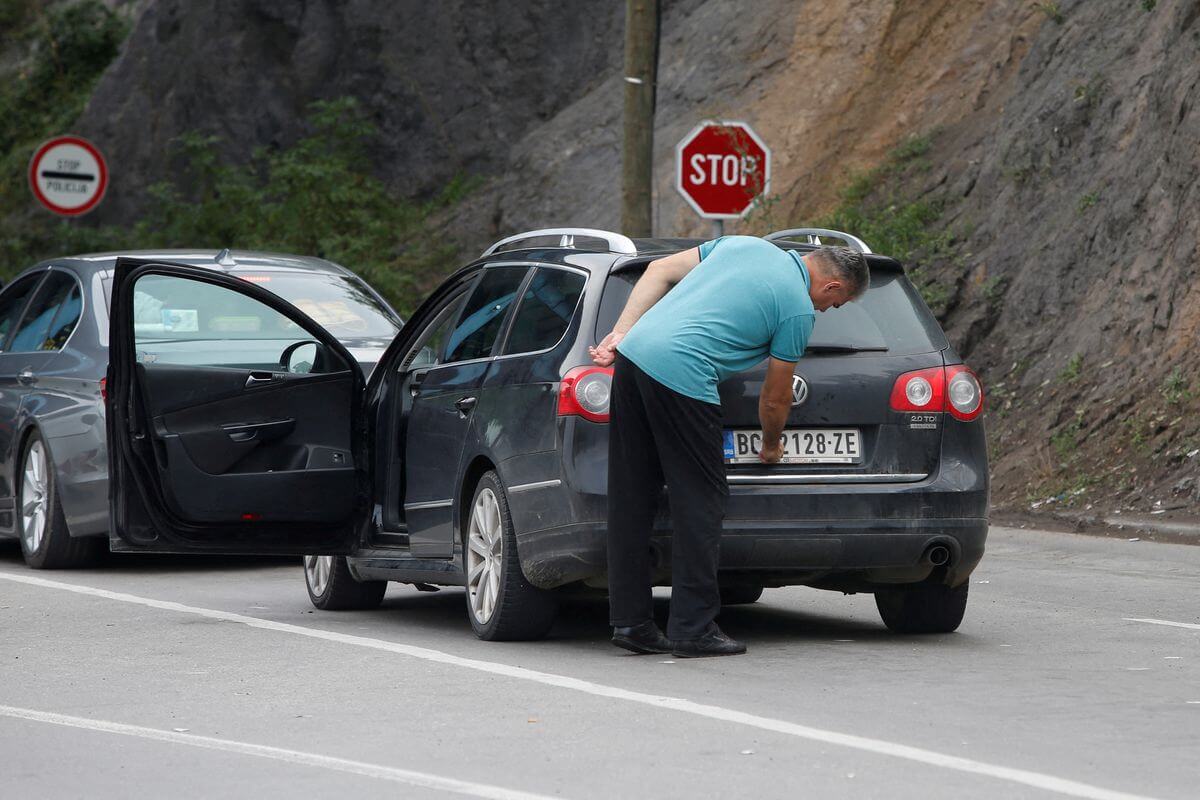On Wednesday, European Union (EU) foreign policy chief Josep Borrell announced that Kosovo and Serbia had agreed “on measures to avoid further escalation and to fully concentrate on the proposal on normalisation of their relations.”
“Serbia will stop issuing license plates with Kosovo Cities’ denominations and Kosovo will cease further actions related to re-registration of vehicles,” he noted. He also revealed that both parties will be invited in “the coming days to discuss the next steps” on normalising ties as presented in the EU proposal, which was supported by France and Germany, in September.
“In case of obstruction by any party, the EU Facilitator may terminate the process,” Borrell warned.
We reached an agreement between #Kosovo and #Serbia today that will allow to avoid further escalation.
— Josep Borrell Fontelles (@JosepBorrellF) November 23, 2022
We will discuss next steps within the framework of our proposal for normalisation of relations between the two parties. pic.twitter.com/YQ7vVWPOgT
Earlier this month, tensions in northern Kosovo erupted after Kosovan Prime Minister (PM) Albin Kurti announced the gradual implementation of Kosovan license plates, with warnings until 21 November, fines for the next two months, and finally a complete ban from 21 April next year. The policy would impact about 10,000 ethnic Serbians who consider themselves to be a part of Serbia despite Kosovo having declared its independence in 2008. Serbia has refused to accept Kosovo’s statehood and claims sovereignty over the region despite having no formal control.
The Police Inspectorate of Kosovo suspended northern police chief Nenad Djuric over his refusal to enforce the government-mandated license plates, prompting the resignation of 10 ethnic Serbian lawmakers, 10 prosecutors, and 576 police officers in the Mitrovica region.
My thanks tonight go to @BislimiBesnik and @PetkovicPetar for their constructive engagement today. And a big thanks to @StateDept and the US diplomacy for their invaluable support! https://t.co/wEJUDbX61H
— Miroslav Lajčák (@MiroslavLajcak) November 23, 2022
“I can say that we are facing the most serious, the most dangerous crisis since 2013 – of the last ten years,” he said, adding that both sides should “urgently show readiness to find a way forward to lower these tensions.”
In 2013, Kosovo and Serbia committed to an EU-sponsored dialogue to resolve all remaining issues between them. However, progress has been elusive. The major sticking point is Serbia’s refusal to recognise Kosovo’s independence, which is recognised by around 110 countries, excluding Russia, China, and five EU members.
Appreciate the constructive approach and flexibility that resulted in this important agreement between Kosovo and Serbia. The agreement enhances security and advances efforts to normalize relations. https://t.co/cn0ZSaecZ7
— Ambassador Jeff Hovenier (@USAmbKosovo) November 24, 2022
Following eight-hour-long talks in Brussels on Monday, Kosovo rejected the bloc’s proposal to resolve the ongoing license plate issue with Serbia, despite Belgrade agreeing to the plan. Borrell particularly blamed Pristina for the failure of talks.
Kurti blamed the EU in response, saying he was willing to conduct further discussions to normalise relations between Kosovo and Serbia instead of just resolving one issue. Following the United States’ (US) intervention, he agreed to postpone the imposition of fines, which would have impacted about 10,000 ethnic Serbs in northern Kosovo, by another 48 hours.
The US Department of State welcomed the agreement and lauded the “constructive negotiations,” saying, “The two parties took a giant step forward today, with EU facilitation, towards assuring peace and stability throughout the region.”
I want to thank @USAmbKosovo Jeff Hovenier and the U.S. Government for their active engagement in reaching today’s deal in Brussels. Their support for the dialog process b/w Kosovo & Serbia is indispensable. 🇽🇰 is grateful.
— Vjosa Osmani (@VjosaOsmaniPRKS) November 23, 2022
Kosovan President Vjosa Osmani thanked Washington for its “active involvement” in the discussions, calling its support “indispensable.” She had earlier accused Borrell of being biased for specifically blaming Kosovo for the breakdown of talks on Monday.
Serbian director of the Office for Kosovo and Metohija Petar Petković stated that “there will be no penalty policy” anymore. “We managed to preserve peace and stability. I say to the Serbian people so they can sleep, we saved our Serbian KM plates,” he remarked.
Crucially, where does this leave Borrell? I can’t imagine the backers of the Franco-German agreement are happy, and he’s soured the mood in Kosovo re the agreement. I also worry about how this will play out among Kosovo Serbs and whether it involves them going back to their jobs.
— Una Hajdari (@UnaHajdari) November 23, 2022
Although the agreement has resulted in defusing tensions, Milos Damjanovic, a researcher at Serbian consultancy firm BIRN, pointed out, “The problem still remains that Kosovo Serbs in the north have walked out of Kosovo institutions and do not wish to return, so there is a long way to go to ‘normalise’ the situation back to where it was just a few weeks ago.”
He also remained “sceptical” as to whether the two neighbours are even interested in normalising ties, noting, “Pristina does not want to give Serbs in Kosovo any kind of autonomy, and Belgrade does not want to sign up to a legally binding treaty on normalising relations.”

